Slow internet is like watching paint dry, it is frustrating and unnecessary. If you're paying for gigabit internet, your cable needs to keep up. You can have the best router, fastest plan, and top-tier service, but if your Ethernet cable can't handle the speed, you’re stuck in first gear.
Choosing the right cable isn’t just about plugging something in. It’s about making sure every device gets what you’re paying for. This guide breaks down which Ethernet cables actually work for gigabit speeds. It provides you with a straight-up answer to a simple question: which cable gets the job done right?
What is Gigabit Internet?
Gigabit internet means you're getting internet speeds up to 1,000 Mbps. That’s fast enough to download a full HD movie in seconds, stream 4K videos without buffering, and run multiple devices at the same time. It uses fiber or high-speed cable lines and delivers better performance across the board.
But even if your provider offers these speeds, you won’t feel the difference if your setup can't handle it. That’s where the best Ethernet cable for gigabit internet makes a real difference.
The Benefits of Gigabit Internet
With gigabit internet, everything feels faster. Downloads, uploads, and streams are all smoother. It’s also ideal for homes with many devices online at once. Below, we’ll dig into specific advantages. Here are a few ways gigabit internet helps improve your everyday connection, and why it’s worth investing in the right Ethernet cable to match.
1. Faster File Transfers
Large files, especially for work or school, move quickly when it comes to MBPS vs. GBPS. Uploading a 2GB video will only take a few seconds. That’s especially helpful for creators or remote workers.
2. Seamless Streaming
Buffering ruins a good movie. Gigabit internet makes sure 4K, HDR, or live streams play without stalling. Therefore, everyone at home can stream at once with zero slowdown.
3. Better Online Gaming
Gamers know speed matters as lag kills the experience. A wired connection using the right Ethernet cable reduces latency and packet loss, with no blame on the Wi-Fi.
4. Stronger Work-from-Home Setups
Zoom calls, cloud apps, and VPNs all demand solid upload and download speeds. With gigabit, everything from screen sharing to file uploads feels easier.
5. Smart Home Performance
Smart lights, speakers, cameras, etc., all pull data. Gigabit ensures smooth, steady connections for everything running in your home at once.
Types of Ethernet Cables for Gigabit Speeds
There are plenty of Ethernet cables, but not all of them support gigabit internet. Some max out below the speeds you're paying for. Let’s sort through the clutter. Before you buy, check the cable type. These types vary in performance, shielding, and use case. Here’s how to figure out what fits your setup.
1. Cat5e
Cat5e (enhanced Cat5) supports speeds up to 1 Gbps at 100 meters. It’s the minimum requirement for gigabit internet and is still used in many homes. Affordable and widely available.
2. Cat6
Cat6 ups the game with better shielding. It supports up to 10 Gbps at shorter distances (up to 55 meters). Less crosstalk. Better reliability.
3. Cat6a
The “a” in the Cat6a cable stands for augmented. This cable supports 10 Gbps at full 100-meter runs. It’s thicker but provides better insulation and shielding.
4. Cat7
Cat7 supports up to 10 Gbps with improved shielding, and it uses GG45 or TERA connectors. More expensive and not necessary for everyone.
5. Cat8
This one is the newest and fastest. It supports up to 40 Gbps at short distances (up to 30 meters). Ideal for data centers, not overkill for home users needing futureproofing.
Factors That Affect Internet Speed
Even with the best plan and the right cable, other things can slow you down. Identifying weak spots helps you get the most from gigabit internet. These hidden speed bumps can cause lag, buffering, or choppy downloads. Let's break them down so you're not left scratching your head.
1. Cable Quality
Cheap cables may claim high speed but underperform. Look for well-insulated, shielded cables rated for at least Cat5e. Materials matter more than flashy packaging.
2. Distance of the Cable
Long cables can lose signal strength. Keep runs under 100 meters for Cat5e–Cat6a, and under 30 meters for Cat8. Shorter cables = better performance.
3. Router and Switch Compatibility
Your cable might support gigabit internet, but the router or switch also needs gigabit ports. If they only support 100 Mbps, the cable won’t matter.
4. Device Limitations
Old laptops, PCs, or consoles may not have gigabit Ethernet ports. Check your devices to make sure they can handle the speed, too.
5. Interference and Crosstalk
Power cables, wireless devices, and walls can interfere with signals. Shielded cables like Cat6 or higher help reduce these effects.
Final Thoughts
The best Ethernet cable for gigabit internet ensures you actually experience those speeds. It’s a simple fix with a big payoff. Whether you’re streaming, gaming, or uploading work files, the right cable makes everything click.
Shop high-performance Ethernet cables from TS Cables now. Max out your connection and don’t let your cable slow you down.
FAQs
Q: Does Cat5 support gigabit speeds?
Cat5e does. Standard Cat5 does not. Therefore, you should always look for the "e" for gigabit compatibility.
Q: Is Cat6 better than Cat5e?
Yes. Cat6 handles higher speeds and reduces interference. It’s a solid step up.
Q: How long can an Ethernet cable be for a gigabit internet?
Up to 100 meters for Cat5e, Cat6a. Cat8 maxes out at 30 meters.
Q: Do all routers support gigabit speeds?
No. Make sure your router has gigabit ports. Check the specs before connecting.
Q: Will a better Ethernet cable fix slow internet?
Only if the cable was the issue. Other causes could be old hardware or bad service.






